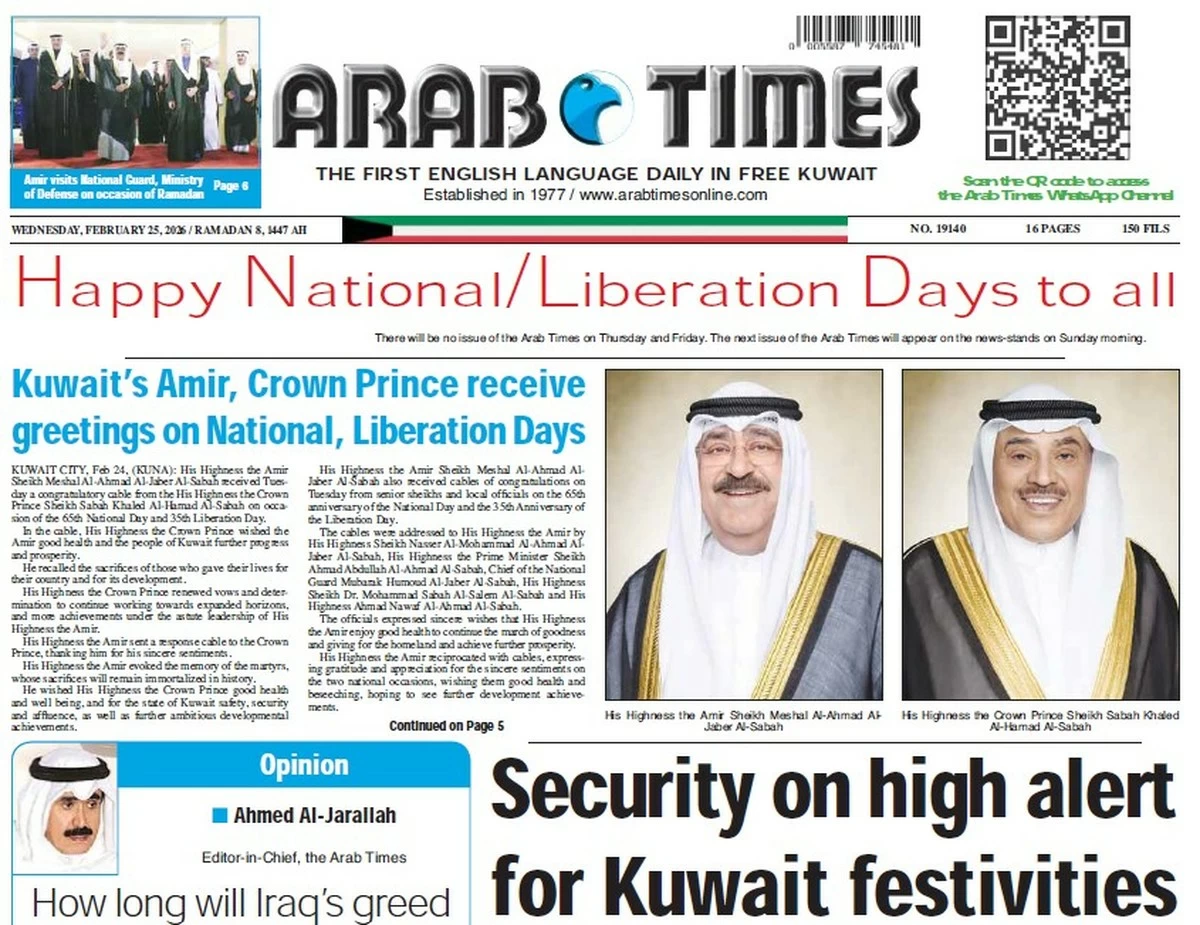13/08/2025
13/08/2025

However, implementing them in Kuwait requires careful analysis and a thorough review of existing legislation and local realities, particularly given Kuwait’s unique nature. The country has a relatively small land area compared to a nation like Saudi Arabia, which is more akin to a continent in scale. Moreover, the real estate market in Kuwait is highly sensitive to sudden shifts in prices or ownership trends, which could result in price inflation and reduce citizens’ future ability to purchase property. The experts proposed alternative models, such as long-term usufruct rights or ownership limited to commercial and tourism purposes.
These measures will help strike a balance between encouraging investment and safeguarding national sovereignty. They also recommended restricting ownership to apartments, while simultaneously increasing their supply, establishing new investment zones, and converting selected residential areas into investment zones. Imad Haidar, Head of the Real Estate Brokers Association, stated that Saudi Arabia’s experience with foreign real estate ownership and the introduction of new regulatory requirements has been successful and achieved its intended goals. Nevertheless, he believes replicating this experience in Kuwait presents challenges due to several factors, including differences in market size, land area, and the dynamics of supply and demand. He explained that Saudi Arabia is a continent-sized country with vast, untapped land. For Saudi Arabia, the entry of foreign investors offers an opportunity to revitalize the real estate market and attract capital.
In contrast, Kuwait’s urban areas that are suitable for development are limited, and demand exceeds supply in most regions. Given that prices are already high, Haidar questioned how much higher they might rise once foreign investors enter the market. He warned about the potential risks associated with foreign ownership, such as inflated real estate prices and a reduced ability for citizens to buy property -- similar to situations observed in Turkiye and Spain, where local populations now oppose foreign ownership due to their children’s inability to compete with international buyers. He pointed out that this proposal was discussed in Kuwait more than a decade ago, but failed to gain traction.
Despite the potential social, economic and security benefits—such as allowing foreigners to settle with their families, reducing remittances, increasing domestic spending, and shifting Kuwait’s demographic profile from predominantly single workers to families—Haidar stressed that any implementation must be preceded by careful legislative review to adapt to the new context. He emphasized that the experiment should be launched in a regulated and limited manner, restricted to apartments, alongside efforts to increase apartment supply, create new investment areas, and rezone parts of Salmiya, Farwaniya and Khaitan for investment purposes.
Real estate expert Alaa Behbehani expressed support for the idea of allowing non-Kuwaitis to own real estate, provided it occurs within a well-defined legal framework that preserves demographic identity and maintains social stability. He stated that this move could significantly contribute to economic growth through increased foreign direct investment, revitalization of the construction sector, and the creation of jobs in related fields like property management, engineering and legal services. “Controlled permission for foreign ownership could also boost both the tourism and real estate sectors, while improving Kuwait’s image as an attractive destination for investment— especially in light of the government’s ongoing efforts to diversify income sources and reduce reliance on oil,” he explained.
He stressed the importance of implementing strict regulations, including designating specific areas for ownership, setting investment thresholds, and limiting the types of properties available for purchase. “These measures would protect citizens’ access to property and prevent unintended price increases,” he asserted.
He suggested starting with alternative ownership models like long-term usufruct rights or ownership restricted to commercial and tourism purposes, to strike a balance between fostering investment and preserving national interests. He added that the next period may involve a comprehensive review of real estate policy in Kuwait, aligned with a development vision that positions the country as a regional financial and commercial hub—without compromising citizens’ interests or social cohesion.
He cautioned against potential downsides, such as rising property prices and speculative purchases by foreign investors who might leave properties vacant. “These issues have emerged in some Gulf countries, where poorly managed foreign ownership experiments resulted in inflated prices and a widening supply- demand gap,” he pointed out. Real estate developer Khaled Behbehani said foreign ownership of real estate is not entirely new to Kuwait.
“Some foreigners have been allowed to own property in the past, with approval from the Council of Ministers under existing Kuwaiti law. I support allowing foreigners to own real estate with clearly defined limits—for example, an area of 200 square meters,” he added. He highlighted the benefits of this step, particularly its potential to boost real estate investment and commercial activity; thereby, stimulating the local economy and attracting foreign capital. He added that allowing foreign property ownership could help curb the out-ward migration of investors, many of whom are leaving the country due to their inability to own property.
“This step could also help reduce capital flight, which is currently a concern,” he asserted. On the other hand, he acknowledged the possible drawbacks of this approach, including increased pressure on infrastructure in certain areas and rise in property prices. He called for clear implementation of the initiative, with well-defined conditions to ensure a proper balance between attracting foreign investment and protecting national interests.
Advantages of Foreign Ownership
1. Influx of foreign direct investment and the revitalization of the economy, construction and building sectors; 2. Generate job opportunities in related service sectors such as property management, engineering and legal services; 3. Attract foreign capital, reduce remittances abroad and spend them domestically;
4. Support social and security stability by transforming Kuwait into a country for families.
5. Diversify sources of income and support the State’s real estate, tourism, and commercial sectors.
Disadvantages of Foreign Ownership
1. Increased real estate prices, which may weaken citizens’ purchasing power and reduce consumer spending;
2. Rental or resale revenues exit Kuwait, reducing the impact of these funds on the local economy;
3. Competition with foreign capital may push local investors away from the real estate sector and reduce their contribution to GDP growth;
4. Excessive weight of the real estate sector within the GDP may expose the Kuwaiti economy to fluctuations in the event of a real estate crisis;
5. Pressure on infrastructure in some areas;
6. Freezing real estate properties if foreigners purchase real estate for investment or as assets without actual use.
Elements for the Success of the Experiment in Kuwait
- Review real estate legislation and amend it to suit the new situation;
- Initiate alternative models such as long-term usufruct rights or ownership for commercial and tourism purposes only;
- Start with specific areas and on a narrow scale, including apartments only;
- Increase the number of apartments and convert some residential plots into investment plots;
- Balance encouraging investment and protecting national sovereignty.
Al Seyassah/Arab Times Staff


